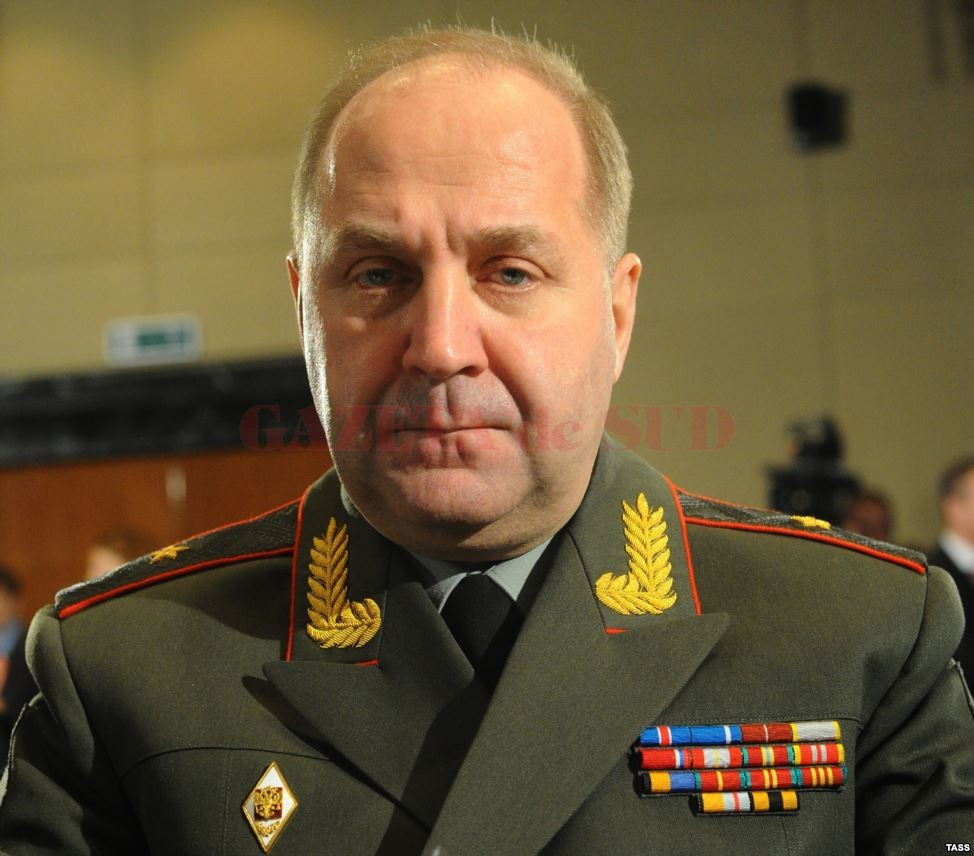Submitted by Tyler Durden on 01/06/2016 11:52 -0500
http://www.zerohedge.com/news/2016-01-06/mysterious-death-raises-questions-russia
Courtesy of Stratfor
A Mysterious Death Raises Questions in Russia
Intrigues within the Kremlin reignited Monday after the chief of Russia's military intelligence service, Igor Sergun, died unexpectedly. Sergun was a relatively unknown figure who kept a very low profile over his 30-year career, despite the fact that his position at the head of the Main Intelligence Directorate (GRU) of the General Staff of the Armed Forces made him one of the most powerful figures in Russian security.
Sergun came to power in 2011, at a time when the GRU's position was under attack by the Federal Security Service (FSB) and the Foreign Intelligence Service — both of which were attempting to gain control of, or at least influence in, intelligence operations in Russia's borderlands. Sergun was able to consolidate the GRU, fortifying the military intelligence service's position among the security groups.
Russia's various security services have long vied with one another for power. Even though Russian President Vladimir Putin served in the FSB (known at the time as the KGB), he has not always let the agency have its way. Putin has tried to keep a balance among the various services — a difficult feat in a world of intrigue and espionage. That balance has been off for the past two years, mainly because of events in Ukraine. Moscow's failure to anticipate the overthrow of Ukrainian President Viktor Yanukovich and the installation of a pro-West government in Kiev in early 2014 largely fell on the FSB. The service reportedly was restructured by mid-2014, and the GRU gained more responsibility for intelligence inside Ukraine — a humiliation for the FSB. The GRU and FSB wrestled with each other during the remainder of 2014 and all of 2015 over control of ground intelligence in Ukraine. Evidence of the behind-the-scenes struggles could be seen in the turnover of pro-Russian separatist leaders in eastern Ukraine and in sporadic reports from Ukrainian intelligence.
However, the FSB's recent problems go beyond Ukraine. The security service has fought to maintain its position within Russia, particularly Chechnya, and to keep one of its most lucrative assets, Rosneft, afloat financially. The FSB's problems could be connected to Putin's mysterious disappearance in March 2015 and to the assassination of opposition leader Boris Nemtsov.
Recent developments provide few details about the current state of the power struggle. Four months ago, rumors circulated in Russian media that one of the GRU's biggest backers, Vladislav Surkov, lost the Ukraine portfolio once again. Surkov, alongside Sergun, had been instrumental in implementing Russia's so-called hybrid warfare strategy in eastern Ukraine and in coordinating the separatist leaders throughout the year. Over the weekend, a Ukrainian intelligence source claimed that the FSB was back in eastern Ukraine working with the separatist leaders. This would indicate a strengthening of the FSB's position.
Against this backdrop, the unexpected death of the head of one of the FSB's biggest rivals raises a number of questions. First is the circumstance of Sergun's death. The Russian government said he had a heart attack in Moscow on Jan. 4, but a Stratfor source heard a report that he died on New Year's Day in Lebanon. If the report that he died in Lebanon is true, it raises questions about what Sergun was doing in a country that is a hotbed for the world's intelligence services and why the Kremlin would cover up his death abroad.
A second question is whether Russian operations in Ukraine will change. Sergun was allegedly one of the designers of Russia's hybrid warfare strategy there, but the FSB could continue with the same strategy. It is also not clear whether the FSB and the Russian military would be able to continue coordinating in eastern Ukraine if the Russian military's intelligence unit weakens or splinters.
Moreover, there is the question of whether the GRU can remain unified under a new leader, particularly with other intelligence services vying for influence. Russian media have already started floating rumors of who will replace Sergun — a curious development, since he allegedly died just a day ago — and various Kremlin watchers have even suggested non-military candidates who have personal ties to Putin. If Putin promotes an ultra-loyalist over a military replacement, it could indicate that he is attempting to bring another security group more firmly under his control, adding another layer of protection for the president should the FSB or any other group grow more disgruntled.
In the months ahead, it will be important to see if or how the FSB takes advantage of the shake-up in the GRU brought about by Sergun's death. The state of the struggle among Russia's security services is of great concern to the Kremlin, which is nervous about the potential for growing unrest in the country ahead of parliamentary elections. It is one of the FSB's primary tasks to monitor and defuse such tensions, but the FSB has taken on many other roles as it has attempted to gain more power. Putin is likely also concerned about the power struggle in the lead-up to the next presidential election in 2018, particularly if he is seen as taking sides in the dispute. This fight for power within the Kremlin has the potential to be one of Russia's — and Putin's — more dangerous challenges in the years ahead.







0 comments:
Post a Comment